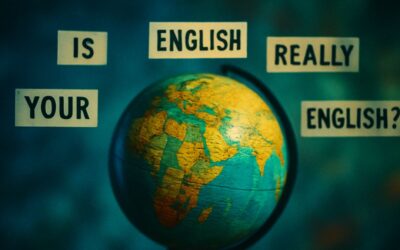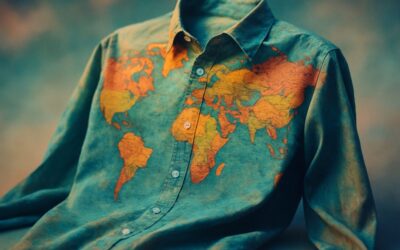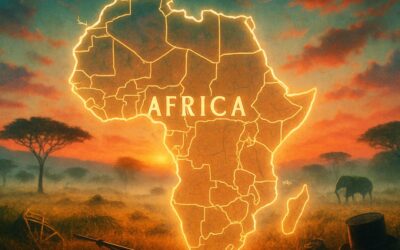Audio Episode
[ppp_patron_only level=5]
The Evolving Tapestry of Popular Culture Transcript: Click to Open
The Evolving Tapestry of Popular Culture
How did a simple radio program connect an entire nation before the internet? What made rebellious rock and roll music, you know, explode into living rooms, thanks to a new invention? How did a movie about space wizards create an entirely new way we experience entertainment? And why is a K-pop group from South Korea a global sensation with a dedicated fan base in, say, Mexico? We’re about to journey through time, exploring how we’ve connected through shared songs, stories, and images, and, well, what that reveals about us. Welcome to a new introduction to a learning quiz from English Plus Podcast. What you’re going to listen to is to help you ace the quiz, but if you prefer to attempt the quiz right away, you can do that because we’ve added hints and feedback for every option, and that’s what makes it a learning quiz, and a fun one if you ask me.
But now let’s talk a little about what you may learn from this quiz. So let’s dive in. Popular culture, pop culture, you hear the term everywhere, right? But what exactly is it? It’s not just about what’s trending at any given moment.
It’s really the culture of the people, the shared language, the trends, the ideas, the entertainment that defines an era. It’s almost like a secret handshake for a generation. Absolutely.
And what’s really key here, I think, is how fundamentally tied pop culture is to technology. Technology hasn’t just influenced pop culture. It has fundamentally shaped what it is and how we experience it.
Think about it like this. A new medium comes along, and bam, suddenly there’s a whole new way of creating, distributing, consuming culture. And it often just rewrites the rules of shared experience itself.
It’s this constant sort of dynamic interplay. That’s a great point, that interplay. It makes you wonder, doesn’t it? What was the last piece of pop culture that genuinely made you, listening right now, feel connected to millions of others, like you were all tuned into the same big conversation? To really get this connection, we kind of have to go back, way back to the 1920s.
Before the internet, before even TV was everywhere, radio was the first great engine of pop culture. Can you imagine how new that felt? For the first time, a family in California and one in New York could be listening to the exact same comedy show or the same jazz band at the exact same time. It didn’t just connect people.
It started forging this, well, national identity, showing that this huge diverse country could actually resonate to the same beat, creating a kind of synchronized public consciousness. Exactly. And that new medium, it gave rise to the first real mass media celebrities.
People knew their voices, maybe not their faces, but their faces were everywhere. That was a huge shift. Before radio, shared experiences were mostly local, right? Your town, your community.
Now, suddenly, you have this collective national experience possible, forging a sense of togetherness through sound, crossing geographical lines. Okay, so let’s jump forward. The 1950s.
Honestly, it was like a cultural earthquake. After World War II, you had prosperity, and teenagers suddenly had two new things, disposable income and free time. And what did they want? They wanted their own culture.
And that’s where this rebellious driving beat of rock and roll just exploded onto the scene. And that’s exactly where artists like Elvis Presley became more than just singers. They became icons, true cultural figures.
The performances, which were electrifying, sometimes seen as controversial, were suddenly beamed right into living rooms everywhere, thanks to television. Oh, the visual element. Precisely.
It wasn’t just audio anymore. It was a visual spectacle. That created an even more immediate, more impactful connection.
TV just amplified that whole youth culture thing massively. It turned musicians into visual statements that really challenged the old ways. I mean, imagine your grandparents seeing Elvis shaking his hips on their brand new TV set.
Must’ve been quite something. And then, just a decade later, the 60s, the energy shifted again. This time, the invasion, as they called it, was coming from across the Atlantic.
Four guys from Liverpool, the Beatles, they landed in America. And wow, it ignited this cultural firestorm, the British invasion. It wasn’t only about the music, though, was it? Oh, definitely not.
It was about fashion attitudes. It brought in this new type of witty, creative pop star. What’s really crucial here is how fast this whole thing went global.
It marked a real turning point. Pop culture wasn’t just staying within national borders anymore. It was becoming a truly global conversation, influencing style and taste everywhere.
It showed the huge power of that cross-cultural exchange. Thinking about that global reach. Yes.
It’s interesting, isn’t it? How does the music you listen to today maybe subtly influence your own style, or maybe even how you see the world? It’s rarely just about the sound itself. Okay, moving into the 70s and 80s, pop culture got bigger, bolder, definitely glossier. And here’s where it gets really interesting for how we consume things now.
1977, a film called Star Wars comes out. It didn’t just break box office records. It basically created the template for the modern blockbuster.
Yeah, it totally redefined movies. They weren’t just stories you watch anymore. They became these huge events, immersive experiences, whole universes to explore.
And they came with all the extras, toys, soundtracks, and of course, sequels. That created this new kind of long-term cultural thing people got invested in. And then, boom, 1981, MTV launches.
That just fundamentally changed the music world. The music video became its own art form. Suddenly, an artist’s visual style was just as important as their sound.
It merged celebrity with this crafted image and really sped up the commercial side of music as this multi-sensory package. Then the 90s hit, and it felt like a real reaction against all that 80s slickness. Out of Seattle, you got this raw kind of angst-filled sound called grunge.
Bands like Nirvana leading the charge. It felt stripped down, more authentic, deliberately messy almost. Right.
And at the very same time, hip hop, which had been bubbling up for decades as this powerful subculture, it just exploded into the mainstream. And it wasn’t just music, right? It influenced fashion, language, attitudes all over the globe, often giving a powerful voice to communities that maybe hadn’t been heard as much in the mainstream before. What’s fascinating there is seeing these two really distinct sounds, one a reaction, one an evolution, showing the different paths pop culture can take, sometimes diverging, sometimes weaving together in unexpected ways.
Then we hit the turn of the century, and wow, two massive game changers arrived that redefined everything again. First, you saw the rise of reality TV, shows like Survivor, creating this whole new kind of entertainment, part social experiment, part competition. But the internet, that was the much, much bigger change, obviously.
Its first impact was hugely disruptive. Remember Napster, file sharing? Chaos for the music industry. Total chaos.
People sharing music for free, CD sales just collapsing. But that disruption, interestingly, also paved the way for a completely new model, digital distribution, and then streaming services. Now, platforms like Netflix, Spotify, YouTube, they’re the main gateways to pop culture.
And they’ve even changed how we consume it, giving us binge watching. Right, whole seasons in a weekend. Exactly.
But the internet also changed who gets to participate in culture. This is huge. It gave incredible power to fandoms.
Fans aren’t just passive consumers anymore. They’re active creators writing fan fiction, making art, connecting globally. And of course, the internet is the ultimate engine for the meme.
Ah, the meme. This totally new kind of cultural shorthand, right? An image, a video, a joke that can literally spread across the entire globe in hours. It shows this shared humor, shared understanding at incredible speed.
It really is incredible when you think about that speed. I mean, compare it to how your parents or maybe even your grandparents found new music or shows. How has the internet totally changed your own experience of discovering stuff? So what does that leave us today? Well, pop culture feels more fragmented and yet more global than it’s ever been.
It’s kind of a That’s a great point. And despite that fragmentation you mentioned, there’s also the sheer dominance of these huge interconnected universes. Think Marvel movies, stories that span across films, TV series, creating this massive sustained global engagement.
So it’s this landscape of both hyper niche interests and these colossal shared experiences, often happening at the same time. Ultimately, though, whether it’s the family gathering around the radio back in the day or the global spread of a meme literally overnight, the story of pop culture really is the story of connection, isn’t it? It absolutely is. And it’s such a profound reflection of us.
It mirrors our fears. Think about those giant atomic monsters in 1950s Cold War movies. Right.
Anxiety made visible. Exactly. And it reflects our joys, too.
Now, sure, it often gets commercialized, turned into a product to be sold. But at its very best, pop culture is the art, the stories, the stuff that helps us understand our world and maybe understand each other a little better. It really is the ever present soundtrack to our lives.
So considering pop culture is described as the ever present soundtrack to our lives and reflects our fears and joys, what does the unprecedented speed and global reach of today’s internet driven pop culture actually reveal about our collective consciousness right now? And maybe more importantly, how might that influence our shared future? We hope you learned a lot from this intro, but that doesn’t mean you shouldn’t take the quiz anymore. There’s still a lot to learn from the quiz, because as we told you at the beginning of the episode, there are hints and feedback for every single option in the multiple choice quiz. So you will learn from your mistakes as much as you will learn from the answers you get right.
That’s why we call it an English plus learning quiz. So go ahead and give it a go. And with this, we reach the end of another learning quiz from English Plus Podcast.
Don’t forget to check out our website, EnglishPlusPodcast.com, not only for quizzes, but to take your English and knowledge to the next level. Thank you for listening. Stay curious and never stop learning.
[/ppp_patron_only]
Introduction
Ever Wonder Why We Love the Things We Love?
Think about your favorite song, a movie you can quote by heart, or a meme that made you laugh last week. Where did it come from? And why did so many other people love it too? That’s the magic and mystery of pop culture—the shared set of practices, beliefs, and objects that are dominant in a society at a given point in time.
But pop culture doesn’t just appear out of nowhere. It’s shaped by technology, historical events, and brilliant creators who capture the spirit of their generation. This isn’t your typical history quiz. Think of it as a backstage pass to the last century of “cool.” It’s a fun, interactive way for us to explore the trends, the icons, and the game-changing moments that created the world we live in today.
By joining me on this journey through the decades, you’ll:
- Connect the Dots: See how inventions like the radio and the internet completely changed the way we share culture.
- Meet the Icons: Discover the stories behind the artists and figures who didn’t just entertain us, but defined entire eras.
- Understand the “Why”: Get a clearer picture of why certain trends took hold and what they said about the society of their time.
- See Your Own Tastes in a New Light: Gain a new appreciation for how the pop culture of the past has shaped the music, movies, and memes you enjoy today.
Ready to hit play on the history of pop culture? Let’s get started.
Learning Quiz
This is a learning quiz from English Plus Podcast, in which, you will be able to learn from your mistakes as much as you will learn from the answers you get right because we have added feedback for every single option in the quiz, and to help you choose the right answer if you’re not sure, there are also hints for every single option for every question. So, there’s learning all around this quiz, you can hardly call it quiz anymore! It’s a learning quiz from English Plus Podcast.
[ppp_patron_only level=5]
[/ppp_patron_only]
Quiz Takeaways
Hello and welcome! Take a moment and think about the last thing that made you feel connected to millions of other people. Was it singing along to a song on the radio? Watching a season finale of a show everyone was talking about? Sharing a funny meme with a friend? If so, you were participating in the vast, vibrant, and ever-changing world of popular culture.
But what is pop culture, really? At its simplest, “pop” is short for “popular.” It’s the culture of the people. But it’s more than that. It’s the shared language of a generation, the collection of trends, ideas, and entertainment that defines an era. And its story is deeply tied to the story of technology.
Let’s travel back in time, before the internet, before television. In the Roaring Twenties, the first great engine of pop culture was the radio. For the first time, a family in California and a family in New York could listen to the exact same comedy show or jazz performance at the exact same time. It created a unified, mass audience and the first true celebrities whose voices, not faces, were known across the nation.
Then came the 1950s, and a cultural earthquake. Post-war prosperity gave teenagers something new: disposable income and leisure time. And they wanted a culture of their own. They found it in the rebellious, driving beat of Rock ‘n’ Roll. Artists like Elvis Presley became icons for a new youth culture, using the new medium of television to broadcast their controversial, electrifying performances into living rooms everywhere.
The 1960s saw the energy shift. This time, the invasion was coming from across the Atlantic. Four lads from Liverpool called The Beatles landed in America and set off a cultural firestorm. The “British Invasion” wasn’t just about music; it was about fashion, attitudes, and a new kind of witty, creative pop star. It showed that pop culture was now a global conversation.
As we move into the 70s and 80s, we see pop culture getting bigger and glossier. In 1977, a film called Star Wars didn’t just break box office records; it created the modern “blockbuster” model. Movies were no longer just stories; they were events, complete with toys, soundtracks, and sequels. A few years later, in 1981, a new TV channel called MTV launched, and the music industry was never the same. The music video became a new art form, and an artist’s visual style was suddenly as important as their sound.
The 1990s brought a reaction to the slickness of the 80s. A raw, angst-filled sound called “grunge” emerged from Seattle, led by bands like Nirvana. At the same time, hip-hop, which had been growing for decades as a powerful subculture, exploded into the mainstream, becoming a dominant force not just in music, but in fashion and language around the world.
Then came the turn of the century, and two things happened that would define pop culture as we know it today. First was the rise of reality TV. Shows like Survivor created a new kind of entertainment, a social experiment and a competition all in one. The second, and much bigger, change was the internet.
The internet was a complete game-changer. At first, its impact was disruptive. File-sharing services like Napster allowed people to share music for free, which caused a crisis in the music industry as CD sales collapsed. But it also paved the way for a new model: digital distribution and eventually, streaming services. Now, platforms like Netflix, Spotify, and YouTube are the primary gateways to pop culture, and they’ve even changed how we consume it, giving rise to the “binge-watching” phenomenon.
More importantly, the internet has changed who gets to participate in making culture. It has given incredible power to fandoms. Fans are no longer just passive consumers; they are active creators, writing fan fiction, making art, and connecting with each other on a global scale. The internet is the ultimate engine for the meme, a new kind of cultural shorthand—an image, a video, a joke that can spread across the globe in a matter of hours.
Today, pop culture is more fragmented and more global than ever. A K-Pop group from South Korea can have the most dedicated fanbase in Mexico. A “sleeper hit” movie can become a worldwide sensation through social media buzz. And huge, interconnected universes like the Marvel movies dominate our screens.
So, from the family radio to the global meme, the story of pop culture is the story of connection. It reflects our fears, like the giant atomic monsters of the 1950s Cold War films, and it reflects our joys. It’s often commercialized, turned into a product to be sold, but at its best, it’s the art and stories that help us understand our world and each other. It’s the ever-present soundtrack to our lives.










0 Comments